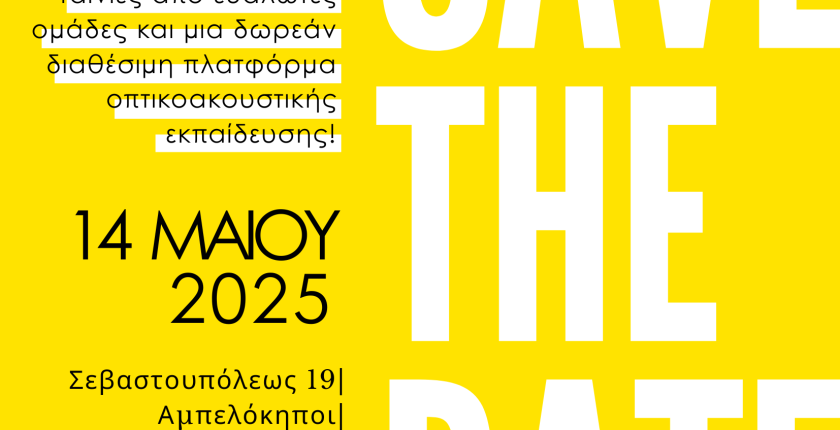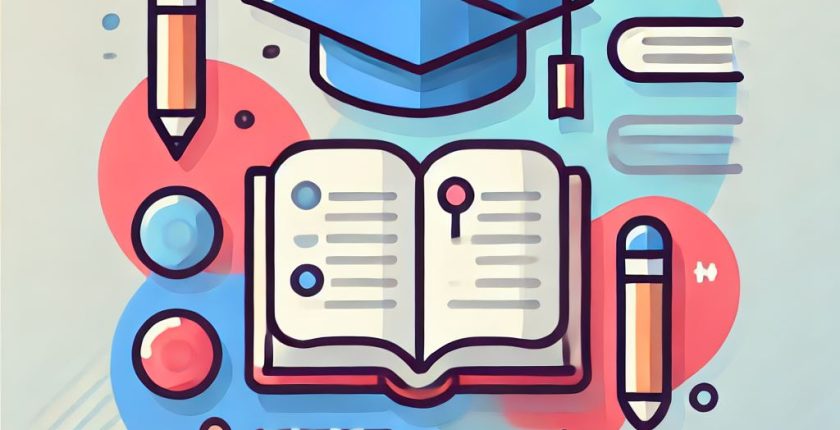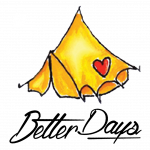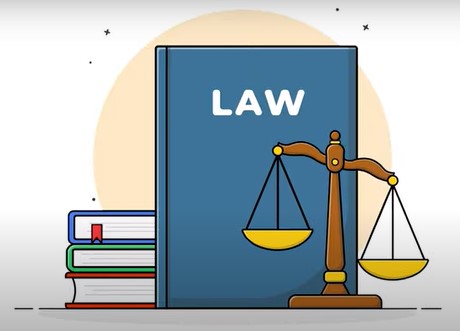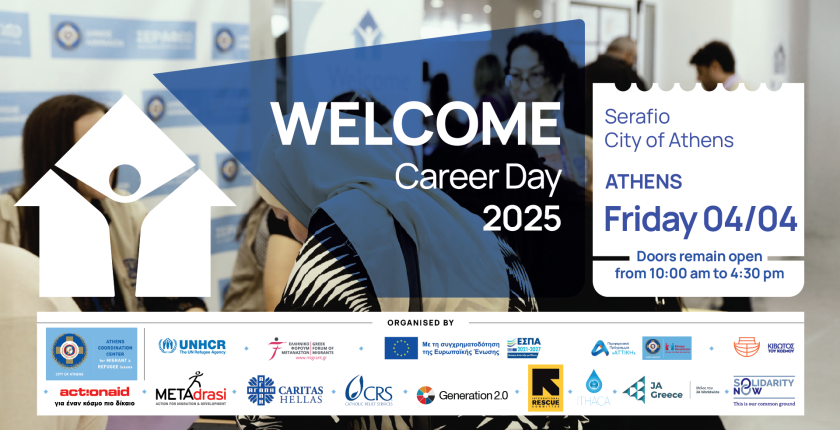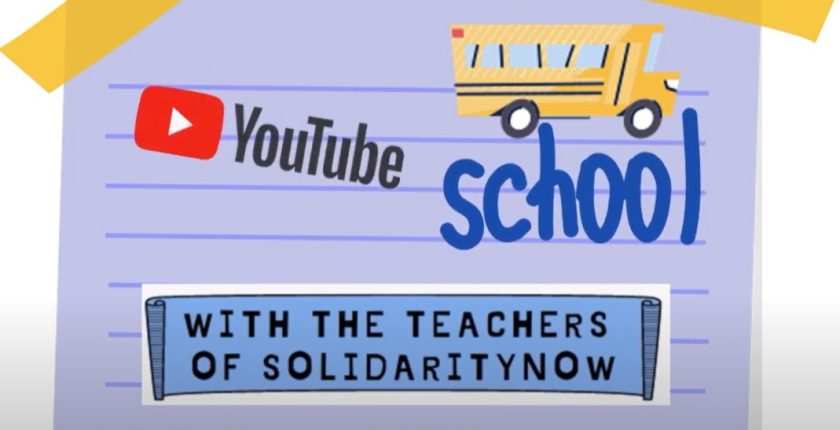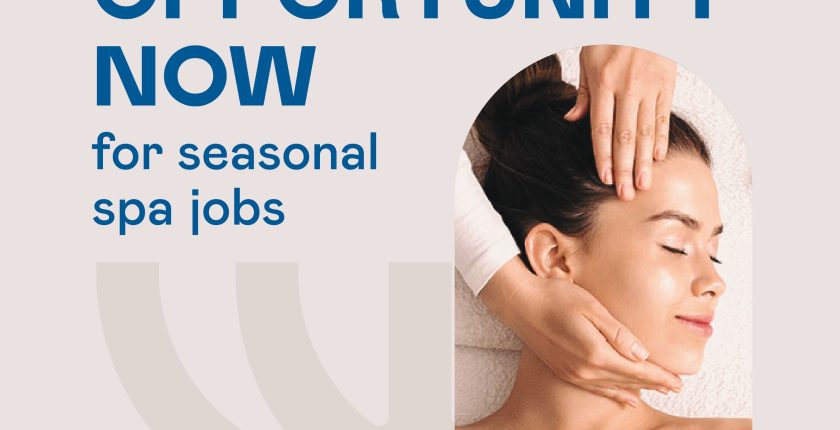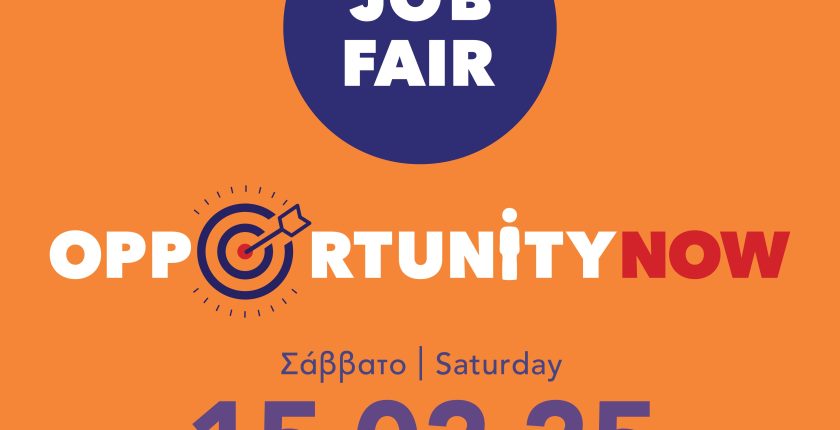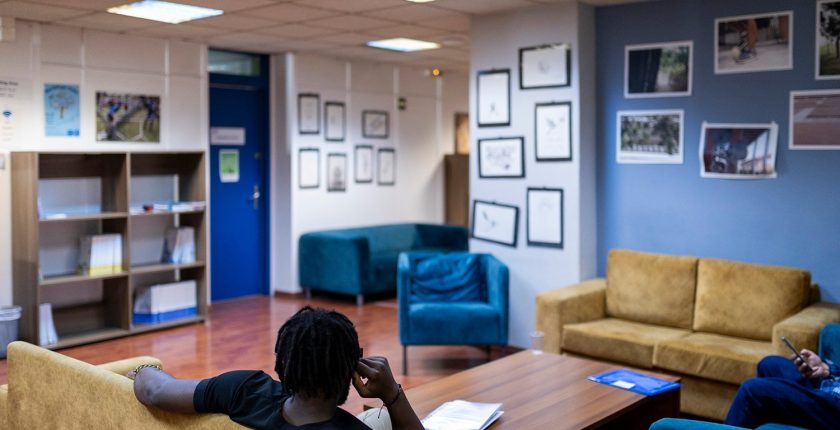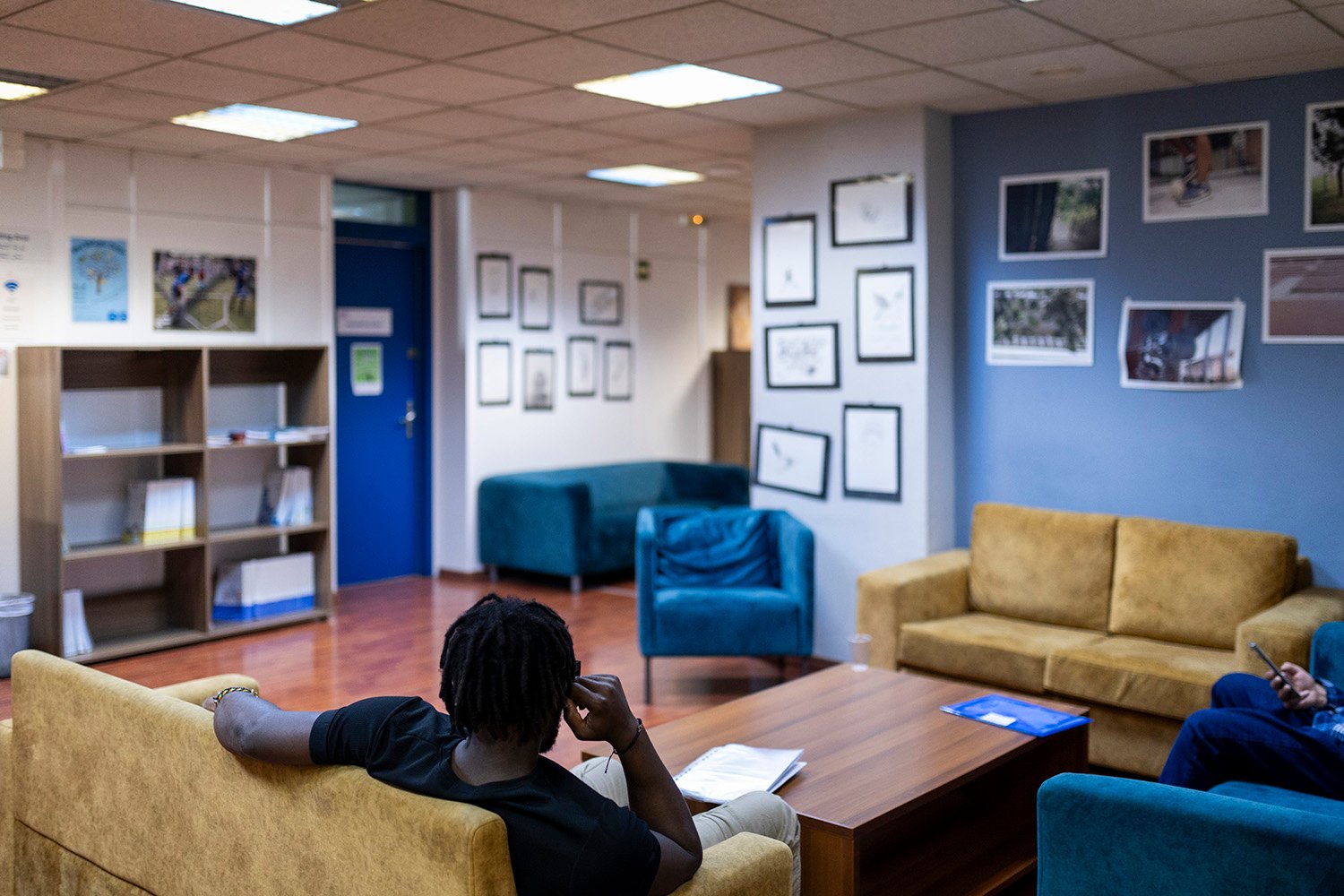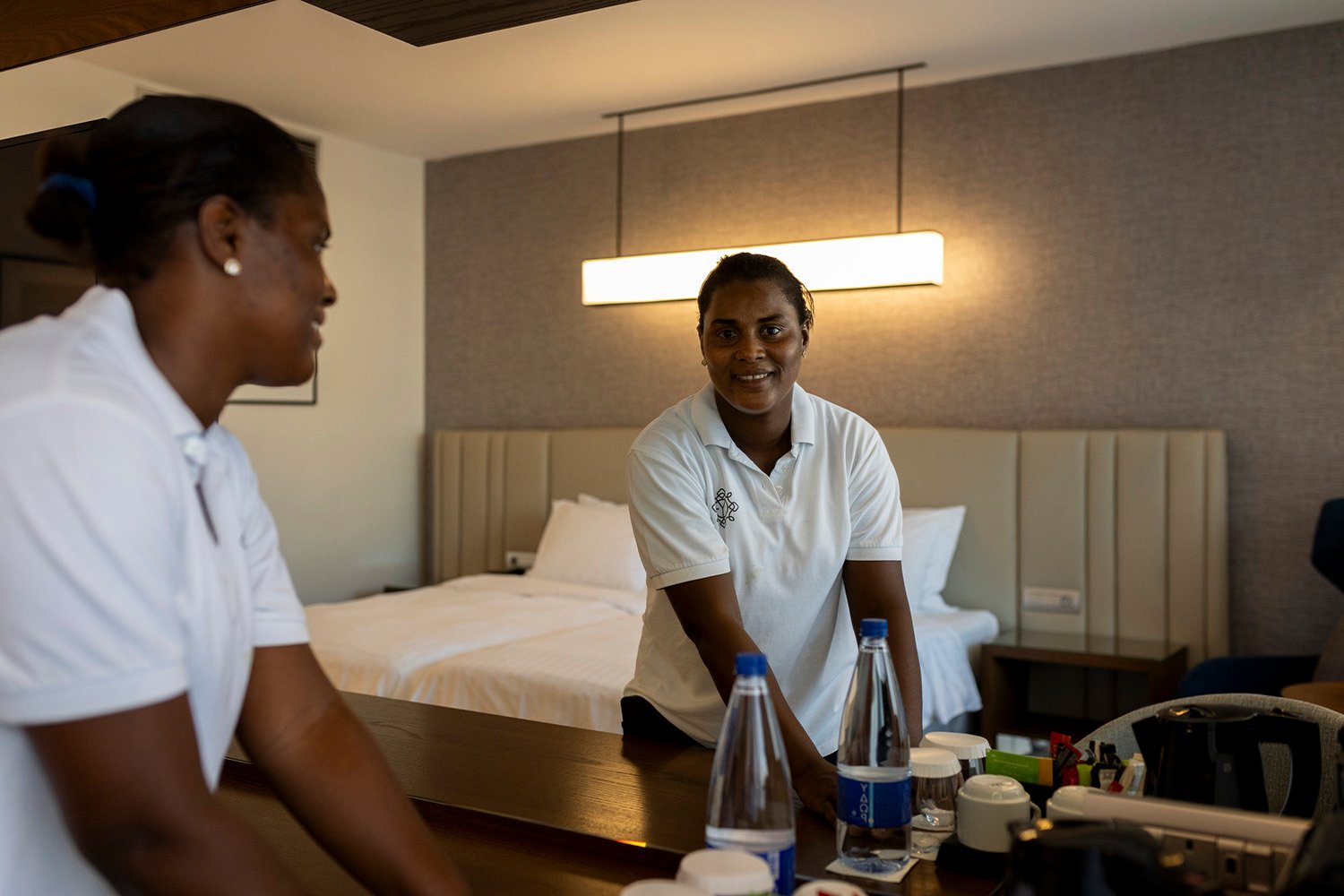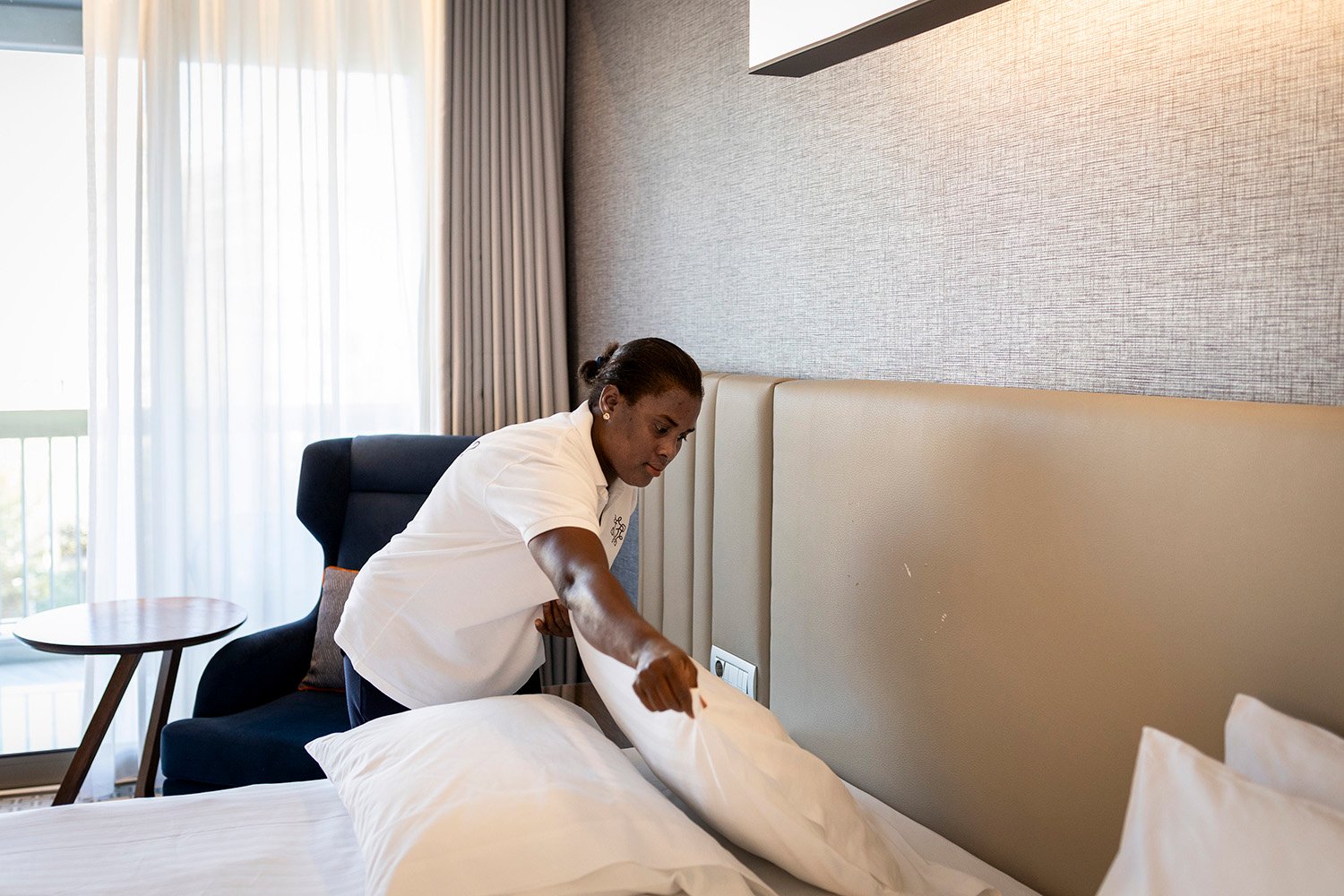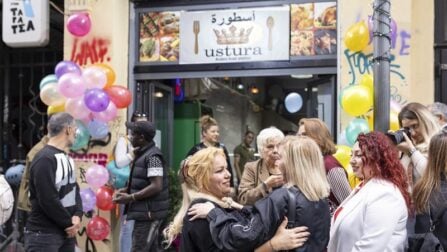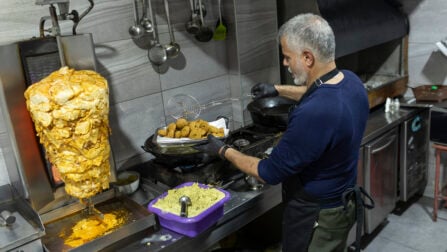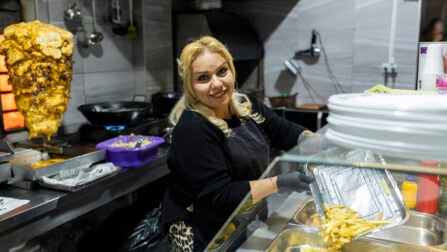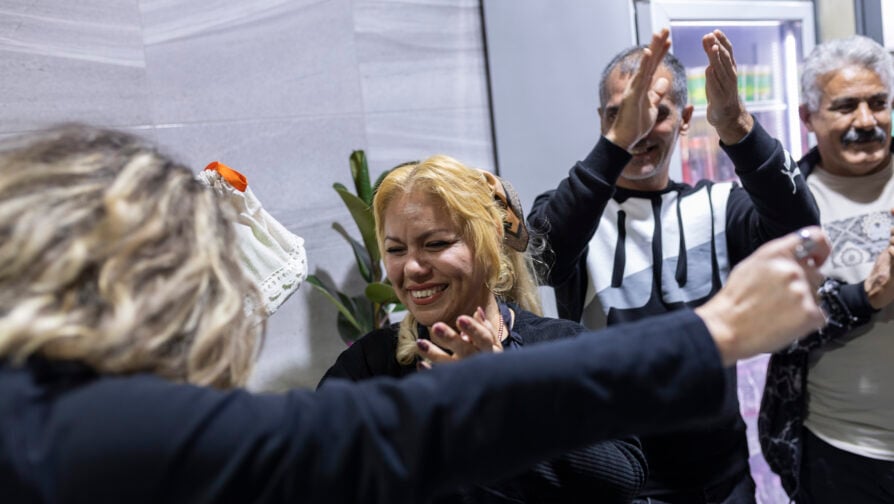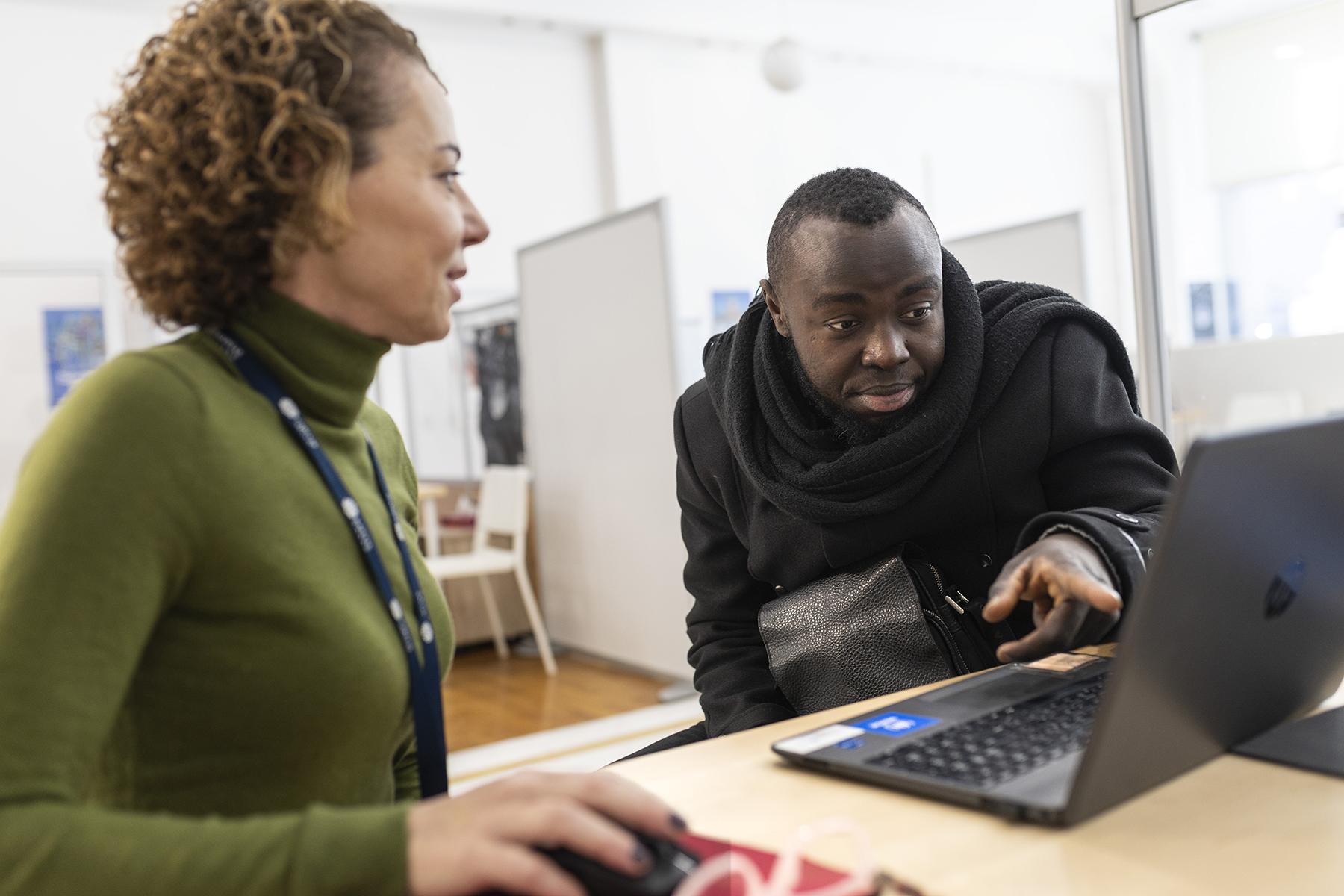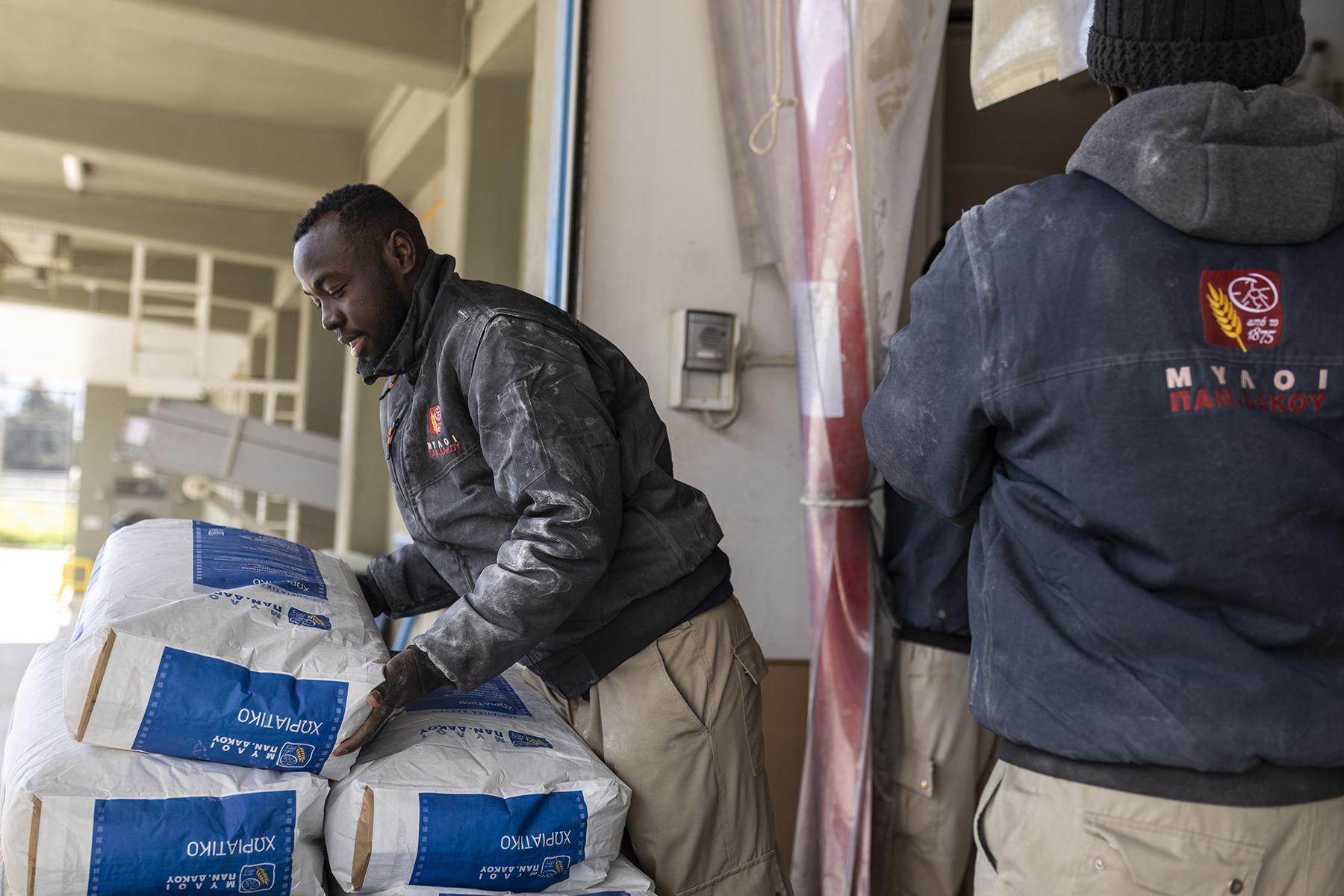Movie event from Karpos
Karpos, an audiovisual media company is organizing a Movie afternoon event by displaying short movies focused on vulnerable people through the CLAP program. The European program CLAP aims to empower vulnerable groups and the development of audiovisual skills as a means of giving voice to these groups through art!
The event starts at 18:00 on 14 May 2025 and there will be a tour to their audiovisual education platform, which through this platform, the groups produced movies with anti-racism content. The platform has free access for use.
The address is at Sevastoupoleos 19, 11526 Ampelokipoi, Athens


